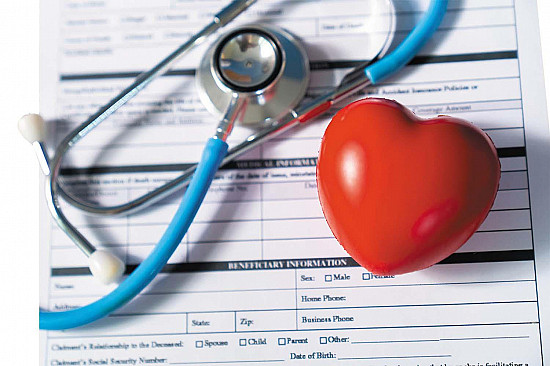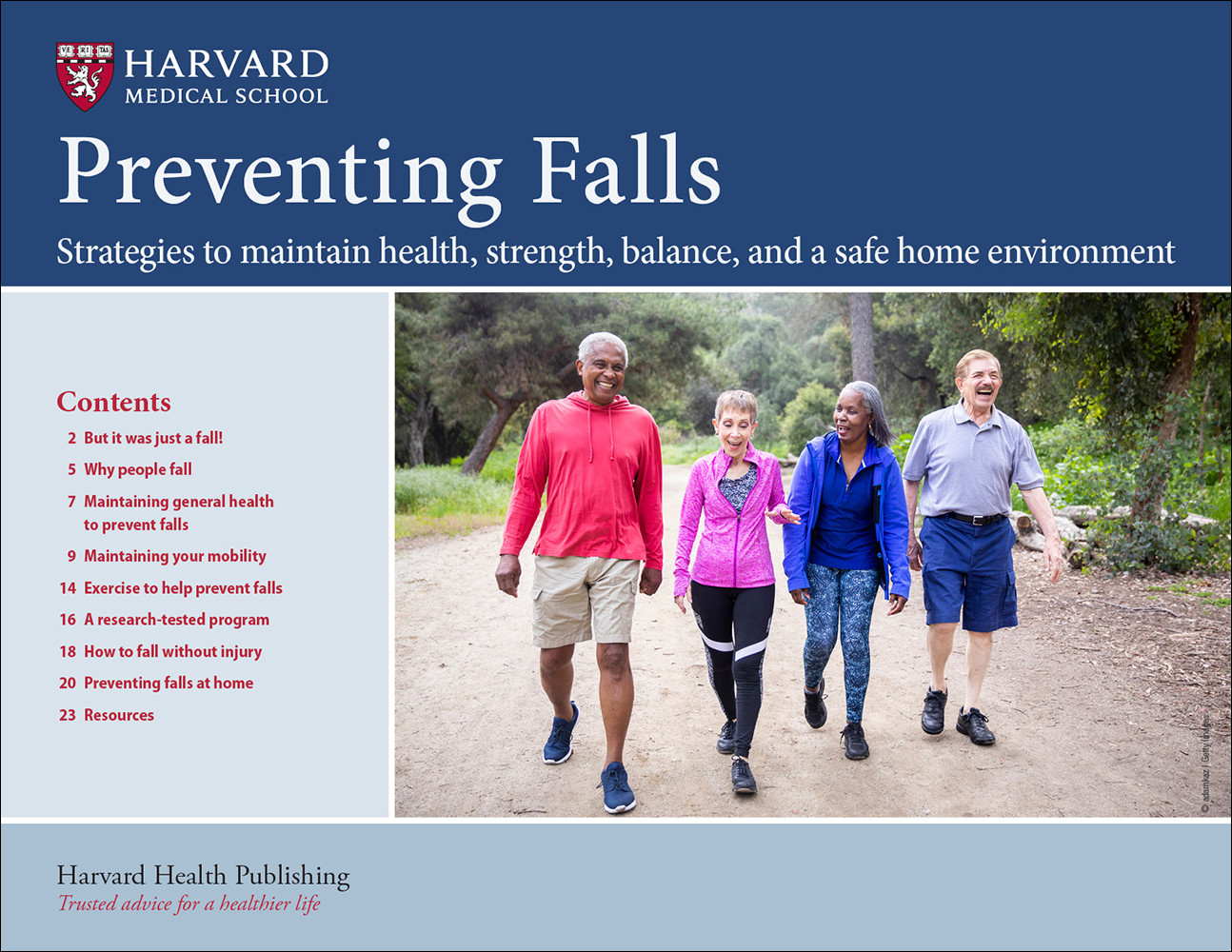Fear of falling: Do you have an emergency plan?
Here's what to expect and what to do if you fall.
- Reviewed by Anthony L. Komaroff, MD, Editor in Chief, Harvard Health Letter; Editorial Advisory Board Member, Harvard Health Publishing

You're doing everything you can to avoid a fall, but sometimes tumbles occur despite best efforts: one in four U.S. adults ages 65 and older report falling in any given year. As common as these accidents are, most of us never consider what to do in the event of a fall. How would you get help? Should you contact your doctor or go to a hospital? What would happen after that?
If you haven't already, it's time to come up with a basic emergency plan, while you're healthy and can think calmly and clearly.
Arrange for help
Ask someone to be your emergency contact in case of a fall, especially if you live alone. "It should be someone in your area who'll help you with decision making, which can be overwhelming when you fall. You might also need the person to assist you with transportation or recuperation," says Dr. Julia Webb, an interventional physiatrist at Harvard-affiliated Spaulding Rehabilitation Hospital. She specializes in nonsurgical treatment for back and neck pain, which often results from falls and fractures.
It will be handy if your emergency contact is also your health care proxy — the person you've named to make your health care decisions if you're unable to make them yourself. This designation requires a legal, notarized document called a durable power of attorney for health care. Such documents are available for free online (usually at a state health department or a non-profit agency website such as the National Hospice and Palliative Care Organization. You can also have your attorney create the document.
Consider getting a medical alert system
If you fall and aren't able to summon help, a medical alert system can call your emergency contacts and 911 at the touch of a button.
The button is in a device that you can wear as a pendant around your neck or as a bracelet on your wrist. The device communicates via cellphone technology or your landline phone to people who can help you. Some devices have built-in fall detection, so they call for help if they sense you've fallen. You also can signal an emergency using an app on your smartphone, smart watch, or smart speaker.
Costs range from $20 to $50 per month, and equipment might cost extra.
Learn the initial actions to take
You might be confused or overwhelmed if you fall, but if you can, try to do two things.
First, note what's happened to you and what your symptoms are. "Take a body survey as soon as possible. Can you wiggle your toes and feel everything? Did you hit your head and lose consciousness? Are you cut and bleeding?" Dr. Webb asks. Second, get help immediately. Don't put off this call, even if you think you're okay.
Know whom to call
Sometimes it's obvious that you need to call 911 after a fall. You might be bleeding or have terrible hip or back pain that's immobilized you.
But it might not be clear that you're hurt and have an injury that warrants a trip to the hospital. How can you tell the difference? "If you hit your head, it's always better to err on the side of caution and go to the emergency department right away," Dr. Webb says. That's particularly true if you're taking a blood thinner and hit your head: it can cause serious bleeding in your brain, even if you think you're fine.
If you didn't hit your head, you aren't having pain, and you're able to move everything, Dr. Webb says it's reasonable to call your primary care doctor and ask if an appointment is necessary.
If it isn't, remain alert for delayed signs of injury. "Symptoms can appear a few hours or even a few days later," Dr. Webb says. "Watch for headaches, dizziness, imbalance, muscle weakness or numbness, difficulty speaking, feeling faint, changes in bladder or bowel function, sore muscles or joints, neck or back pain, or blurry vision. Call your doctor to report these symptoms immediately."
Fall prevention 101Falls are a leading cause of injury and death among people ages 65 and older. Yet many falls are preventable. One of the most important ways to prevent falls is removing hazards at home — and at work, if possible — such as throw rugs, electrical cords on the floor, and furniture blocking your path. Make sure handrails are securely fastened to the wall and that lighting fixtures have working bulbs. Install grab bars and floor treads in bathrooms, and add night lights throughout your home for midnight trips to the bathroom or kitchen. Other strategies can help, too:
For more information, check out the Harvard Special Health Report Preventing Falls. |
What you can expect
What happens at a hospital or doctor's office visit depends on your injury.
In a doctor's office, expect questions about what caused you to fall. The doctor will perform a physical exam and a basic test of vision, balance, and thinking skills; review your medications; and try to determine if an underlying condition caused your fall. Your doctor might also order x-rays to check for broken bones or head trauma.
In the hospital, you'll get a brain scan if you hit your head, and x-rays if the doctor suspects you have a broken bone. You might need surgery for a bad break, such as a hip fracture. After a hospital visit or stay, you might need to go to a rehabilitation facility, outpatient therapy (such as physical therapy), or follow-up doctor appointments.
Because you know all of this in advance, there's time to think about how you might navigate the logistics of a fall and your recovery. How would you get groceries or take care of yourself? Do you have a budget to hire health aides to help while you're recuperating? What are the reputable health aide companies in town? What would you do for transportation? Talk to your family or health care proxy about the options — just in case. It's never too early to be prepared.
Image: © Sorapop/Getty Images
About the Author

Heidi Godman, Executive Editor, Harvard Health Letter
About the Reviewer

Anthony L. Komaroff, MD, Editor in Chief, Harvard Health Letter; Editorial Advisory Board Member, Harvard Health Publishing
Disclaimer:
As a service to our readers, Harvard Health Publishing provides access to our library of archived content. Please note the date of last review or update on all articles.
No content on this site, regardless of date, should ever be used as a substitute for direct medical advice from your doctor or other qualified clinician.
















